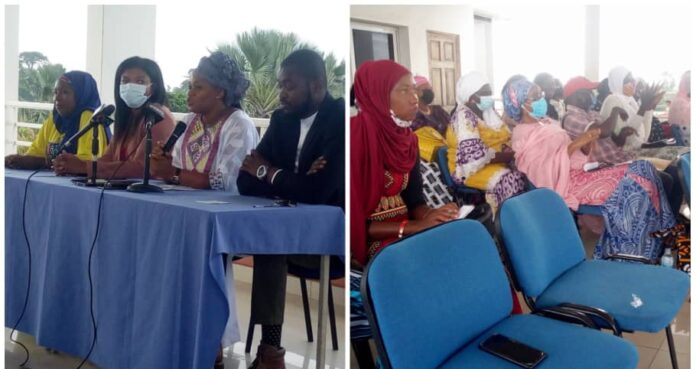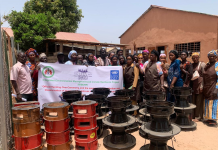By Ndey Sow
The Gambia Chamber of Commerce and Industry (GCCI) with support from the International Trade Center (ITC) on Tuesday, 5th October, 2021 launched a million-dalasi initiative titled: “Challenge Fund for Women Entrepreneurs.”
The initiative is aimed at finding, supporting and accelerating early-stage grassroots solutions that will address challenges in access to market, in transportation and distribution, ago-processing/ storage facilities and promoting climate smart ventures.
Sarata Conateh, Acting Chief Executive Officer of GCCI, said the initiative is meant to create an opportunity for women to bring forward innovative and locally owned solutions that tackle challenges faced by women entrepreneurs amplified by Covid-19.
She added that it will also help women in addition to their immense participation as economic operators, mainly owners of small businesses.
In April 2020, the EU-funded Youth Empowerment Project (YEP), in partnership with KMC Mayor launched a million-dalasi challenge fund to support youth-led solutions that tackle socio-economic challenges caused by Covid-19. The fund was awarded to three young entrepreneurs in the KMC region that presented smart and practical business solutions to curb Covid-19 socio-economic challenges.
The Covid-19 has presented the world with a complete re-orientation of doing business.
Yassin Njie, a representative from International Trade Center (ITC), said the Covid-19 has also profoundly impacted rural women, especially rural women entrepreneurs.
She disclosed that the project is part of the Peacebuilding Fund (PBF) project on “Climate Conflict: Strengthening Community Coping Mechanisms to Mitigate Risks of Conflicts and Reduce Climate-Related Tensions in The Gambia.”
“The project is a joint initiative implemented by the WFP, ITC and UNFPA in collaboration with the Government of The Gambia,” she said.
Madam Njie also said that the project seeks solutions to the climate-related conflict through three main approaches; reduce the impact of climate conflict drivers, neutralize conflict drivers, and solve existing conflicts through the strengthening of conflict resolution mechanisms at a community level amongst others.




















